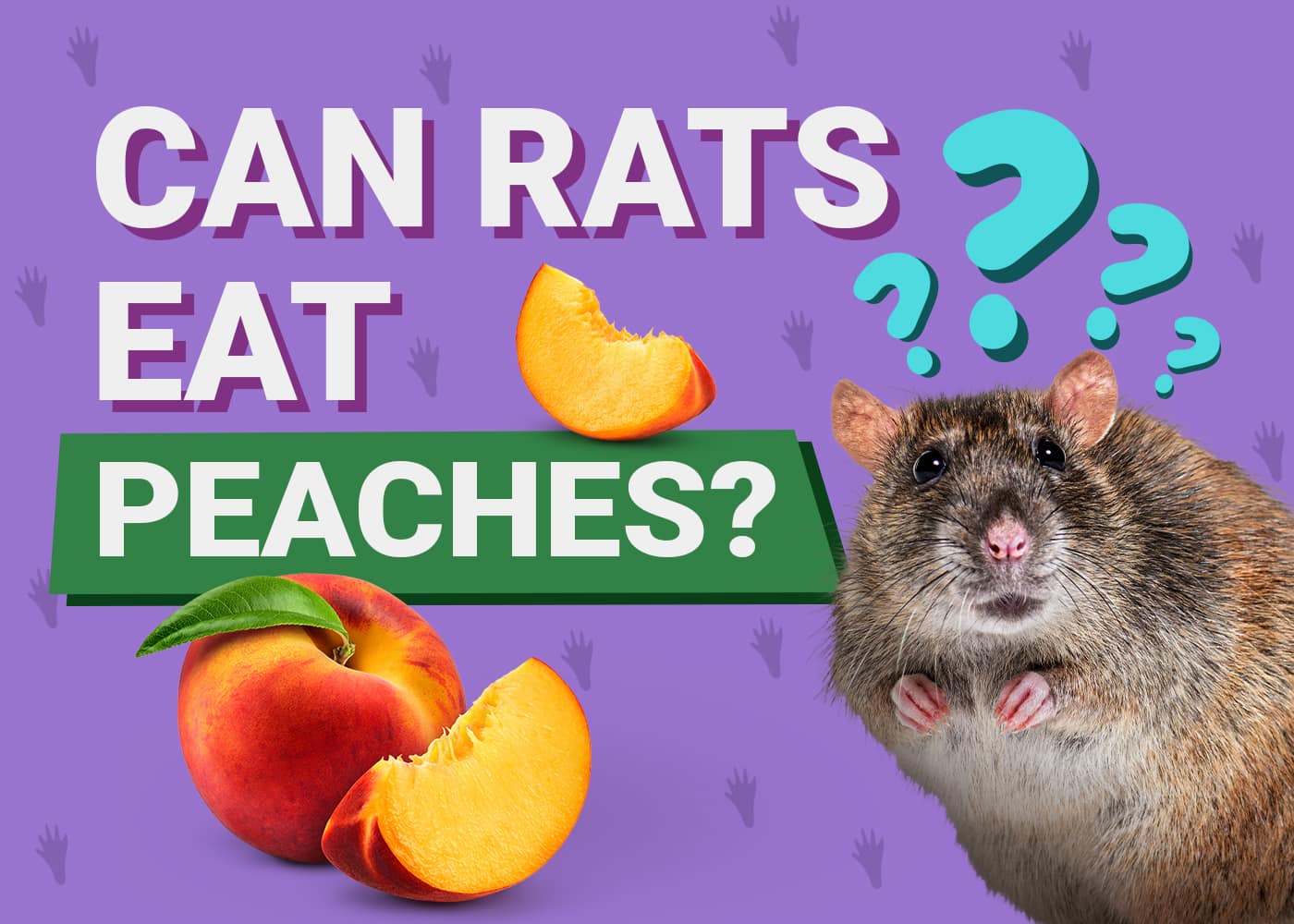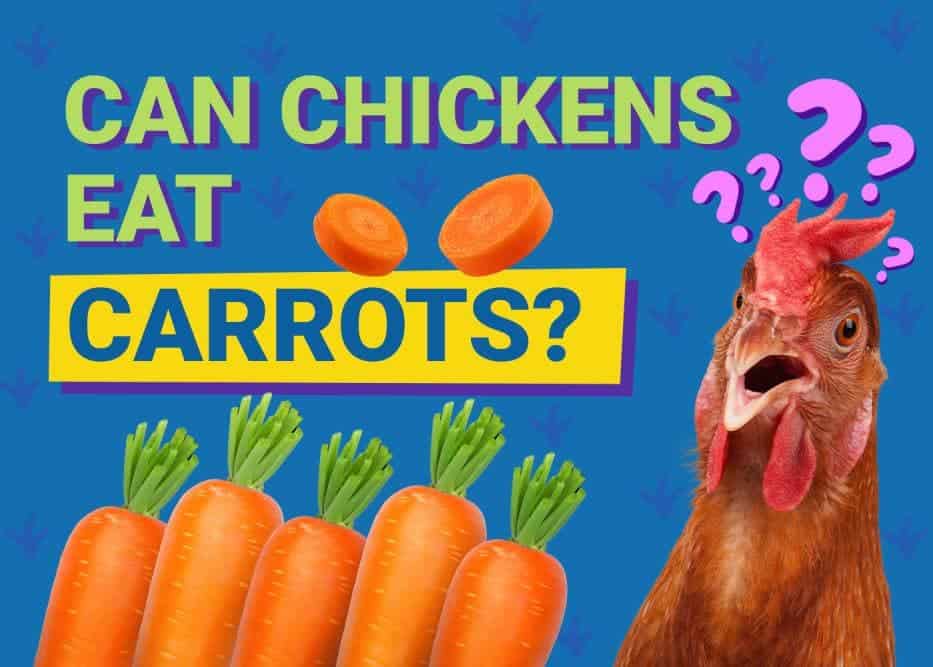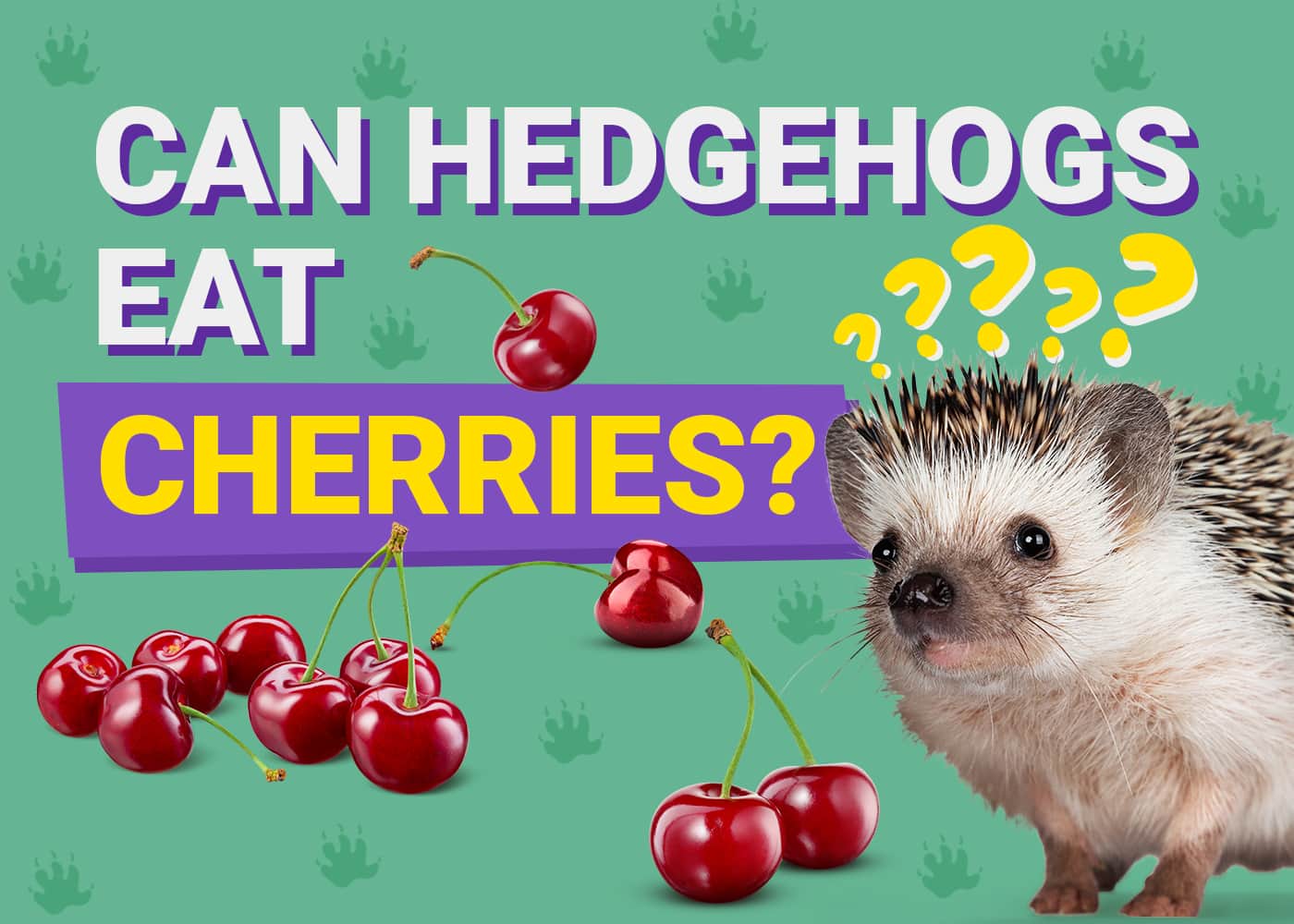VET APPROVED

The information is current and up-to-date in accordance with the latest veterinarian research.
Learn more »Click to Skip Ahead
Fruits and vegetables are a healthy addition to most diets for us humans. However, our pets are a different story. Though pet rats are omnivores and enjoy a variety of different foods, including sweet treats like fruits, it doesn’t mean that these foods are always acceptable for them.
Peaches are delicious, easily accessible, and provide a variety of nutrients, but can rats eat peaches? Like most other fruits, rats can have peaches, but there are some precautions you need to take before adding them to their diet.

What’s an Ideal Rat Diet?
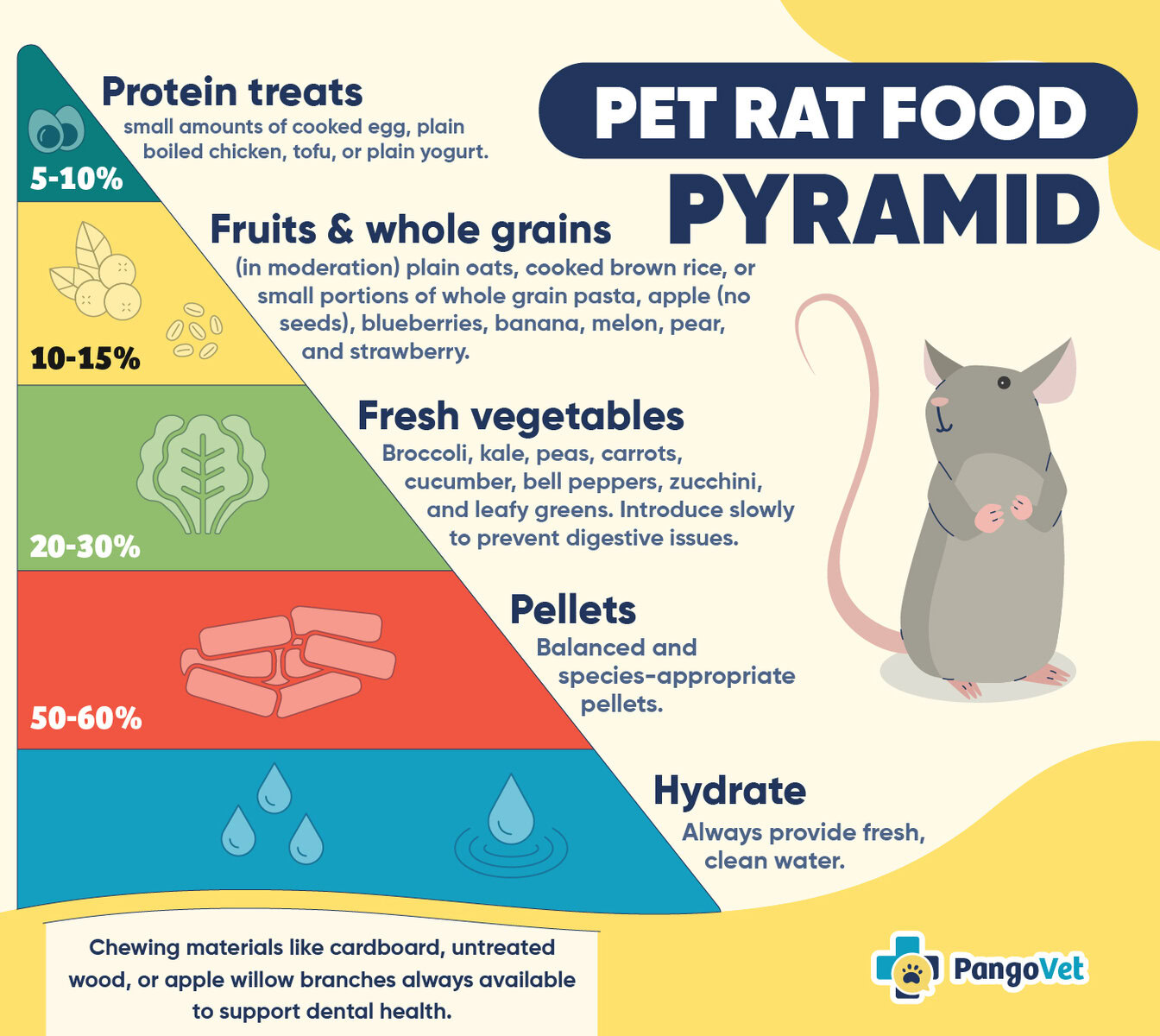
Often depicted as pests and disease-ridden vermin, wild rats are opportunistic and eat whatever they can find, including human food, pet food, and garbage. However, just because a rat will eat whatever they can doesn’t mean they should.
Given options, rats quickly pick and choose their favorites. Pet rats also do not get the same level of exercise as their wild counterparts do. As such, they often end up obese if allowed to free-feed from a buffet of items. Due to this, a rodent pellet is considered as the safest option for the fundamentals of a pet rat’s diet. This pellet should be complemented with high-fiber items (such as hay, and certain vegetables), and smaller fractions of items like seeds and other protein sources.
Fruits have a nutritional profile that is often difficult to justify for pet rats; they’re often too high in calories to warrant their inclusion in a pet rat’s diet on a regular basis or in high amounts. As such, fruits are often relegated as treats for pet rats.
That being said, many fruits and vegetables are indeed safe for pet rats.
- Bananas
- Apples (not the seeds)
- Pears (without the seeds)
- Peaches (without the pit)
- Cabbage
- Parsley
- Berries
- Peas
- Carrots
- Broccoli
- Melons
- Endives
Rats can also have these nutritious foods, but only when cooked thoroughly:
- Sweet potato
- Red cabbage (in moderation)
- Corn
- Beans (unseasoned)
- Meat (unseasoned, unflavored)
- Eggs (unseasoned)
- Pasta (unseasoned)
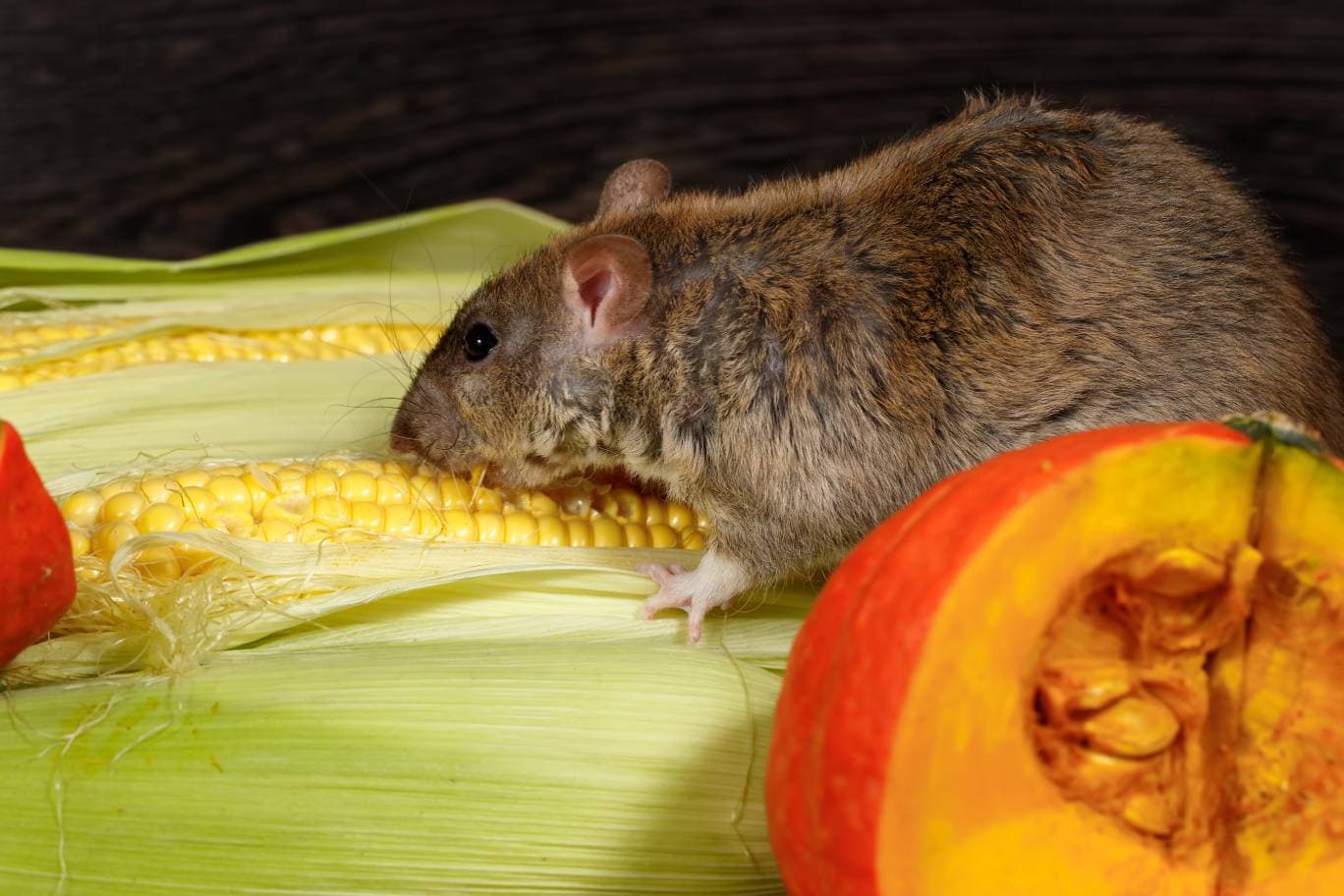
Nutritional Value of Peaches for Rats
Peaches are delicious fruits that grow on deciduous trees. First cultivated in China in 6,000 BC, peaches are now commonly found all over the world and are one of the easiest fruits to obtain.
Most of a peach is in fact water. This is followed by carbohydrates, which are in the form of naturally occurring sugars1. These carbohydrates are what give peaches their sweet taste. From a nutritional perspective, it’s very important to evaluate these sugars carefully.
Studies involving rats have shown that they do not fare well with high levels of fructose in their diet2. Though fructose isn’t the main carbohydrate found in peaches, it is nonetheless still present in them.
This does mean that a peach isn’t a “perfect” food for a pet rat and definitely shouldn’t be fed in high quantities. However, it is definitely safe for them to eat in moderation (as this would also limit the intake of fructose), because the amount found in a small morsel of the fruit wouldn’t be concerning for an otherwise healthy pet rat.
Present day husbandry guidelines for pet owners also caution against adding too many fruits to a rat’s diet3. Therefore, as with all fruits, it’s best to use peaches as an occasional treat for your pet rat.
Potential Hazards of Feeding Peaches to Rats
While the flesh of a peach is safe for a pet rat in moderation, the pit can be dangerous.
Peach pits, like other fruit pits, contain traces of organic cyanide, in the form of amygdalin. Though there aren’t reports of seed toxicities in pet rats, it’s still best to play it safe and not offer them the pit.
You should also avoid giving your rat canned peaches as they will usually have a much higher sugar content than fresh peaches.
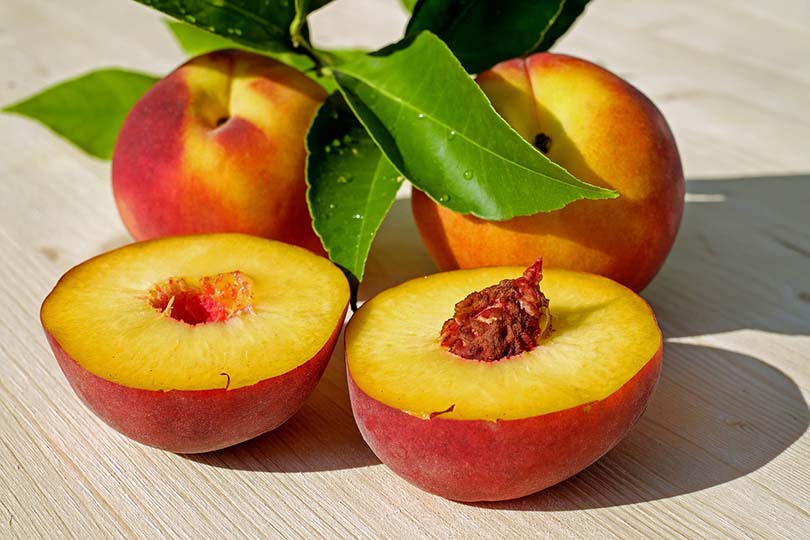
Other Considerations for Feeding Peaches to Rats
Once the pit is removed, the peach is completely safe for your rat to enjoy in moderation. That said, fruits should only be a treat for a pet rat. If you want to add peaches—or any other fruit —it’s best to introduce them gradually to ensure your rat tolerates them well and enjoys them. If all goes well, you can slowly increase the amount.
If your pet rat has any health conditions or special dietary needs, be sure to speak to your veterinarian before introducing peaches or other new foods into their diet.
What Foods Should Your Pet Rat Never Have?
Some foods are poisonous to pet rats and shouldn’t be fed under any circumstances.
If you’re not sure about a particular food, it’s best to err on the side of caution and reach out to a veternarian. You have plenty of options for foods that are healthy and enjoyable for your rat, so there’s no reason to take a chance on a potentially harmful food. The flesh of peaches is not toxic for pet rats. In moderation, pet rats can be offered peaches. However, like all fruits, peaches shouldn’t be considered a dietary mainstay for pet rats. Instead, they should be considered a treat for them.
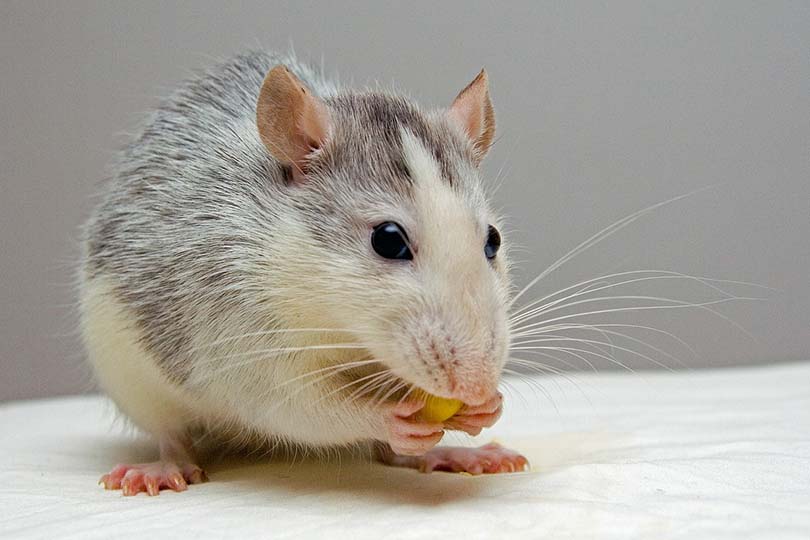

Conclusion
Though pet rats may opportunistically eat many foods offered to them, it’s important to keep in mind that their nutritional needs are quite complex. As such, it’s best to discuss your pet’s nutritional needs with your veterinarian whenever you’re in doubt about what foods you should incorporate into their diet.
Related Reads:
